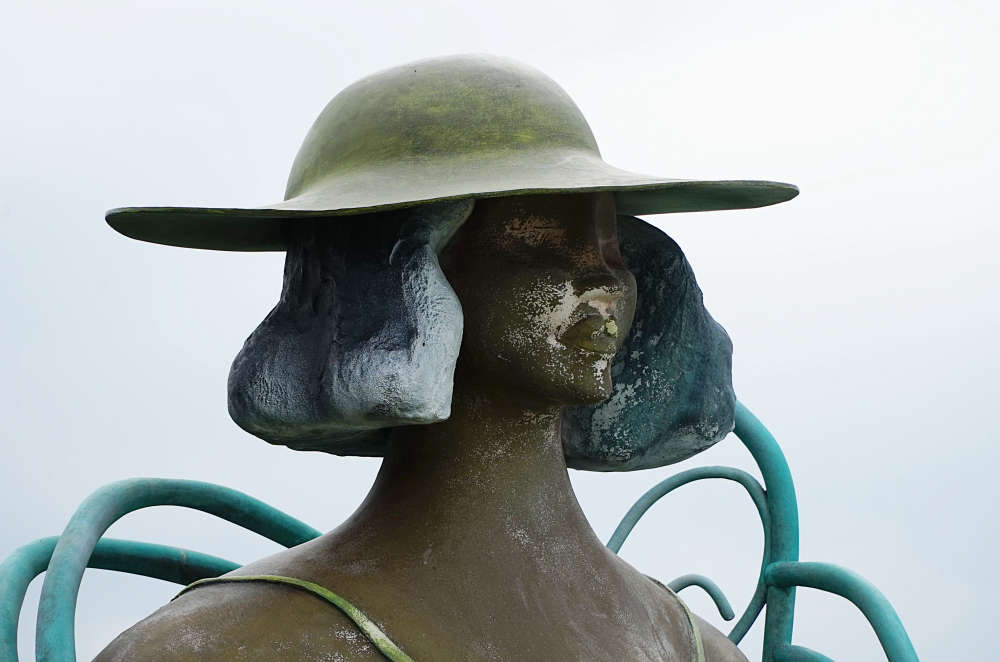
Dozens of local residents arrived at the De La Warr Pavilion in Bexhill on Sunday (May 21) to clean a sculpture of a black woman that vandals had spray painted white.
The sculpture, which stands outside the De La Warr Pavilion, stands three metres high and is titled 'Seated'. It faces toward the ocean evoking the 'acts of resting, reflection and leisure'.
On Monday, May 15, vandals spray painted the entire sculpture white in an act of vandalism and, what some residents have labelled an act of racism.
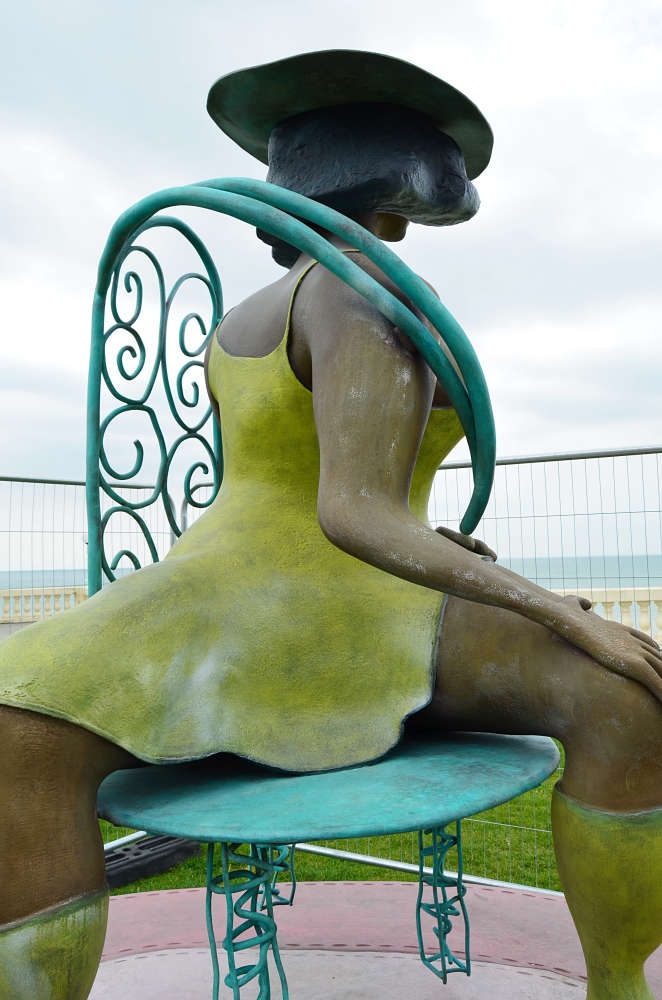
In a statement, the artist said she was "disheartened" by the "obscene act" and that she "felt horribly for individuals in Bexhill-on-Sea for whom this event may have shocked or frightened".
On its website the De La Warr Pavilion invited members of the public to help clean the sculpture "to help remove the paint and bring the community together in an act of peaceful resistance".
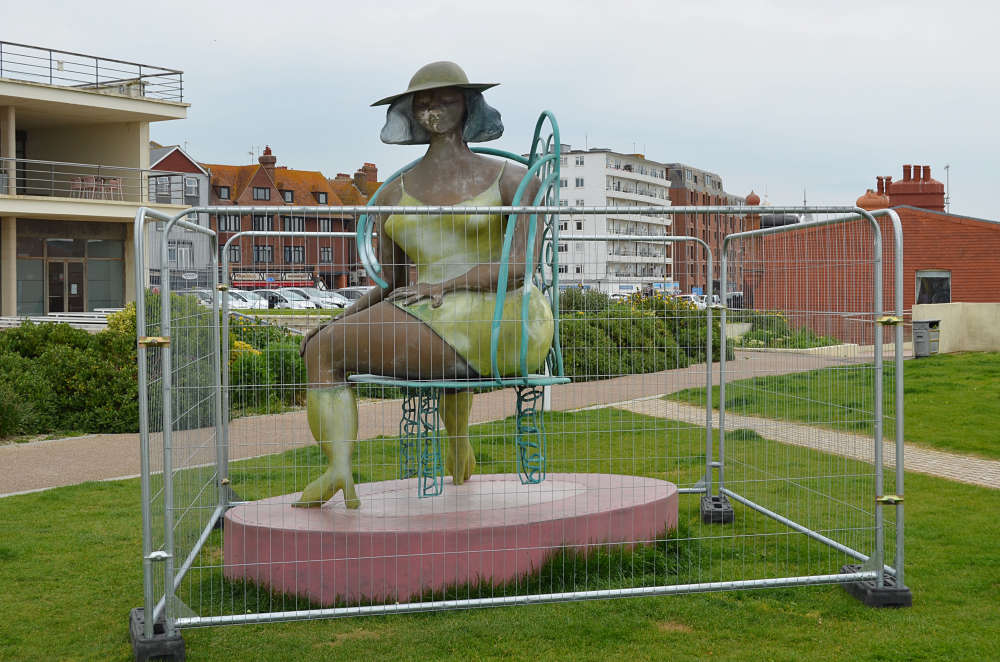
The cleaning was supported by the artist Tschabalala Self, who attended the site at 11am on Sunday morning (May 21) along with many others who responded to the call.
Other parts of the terrace have also been vandalised recently, including glass panels on the stairway leading down to the promenade.
Stewart Drew, chief executive of De La Warr Pavilion, said that "tensions had been running high in the town," possibly referring to the recent news that the former prison site Northeye has been earmarked as a place that could hold up to 1,200 single male asylum seekers.
Yesterday (May 22) Rother District Council reported that they shared concerns about the proposals but have so far received no further information from the Home Office about plans for the site.
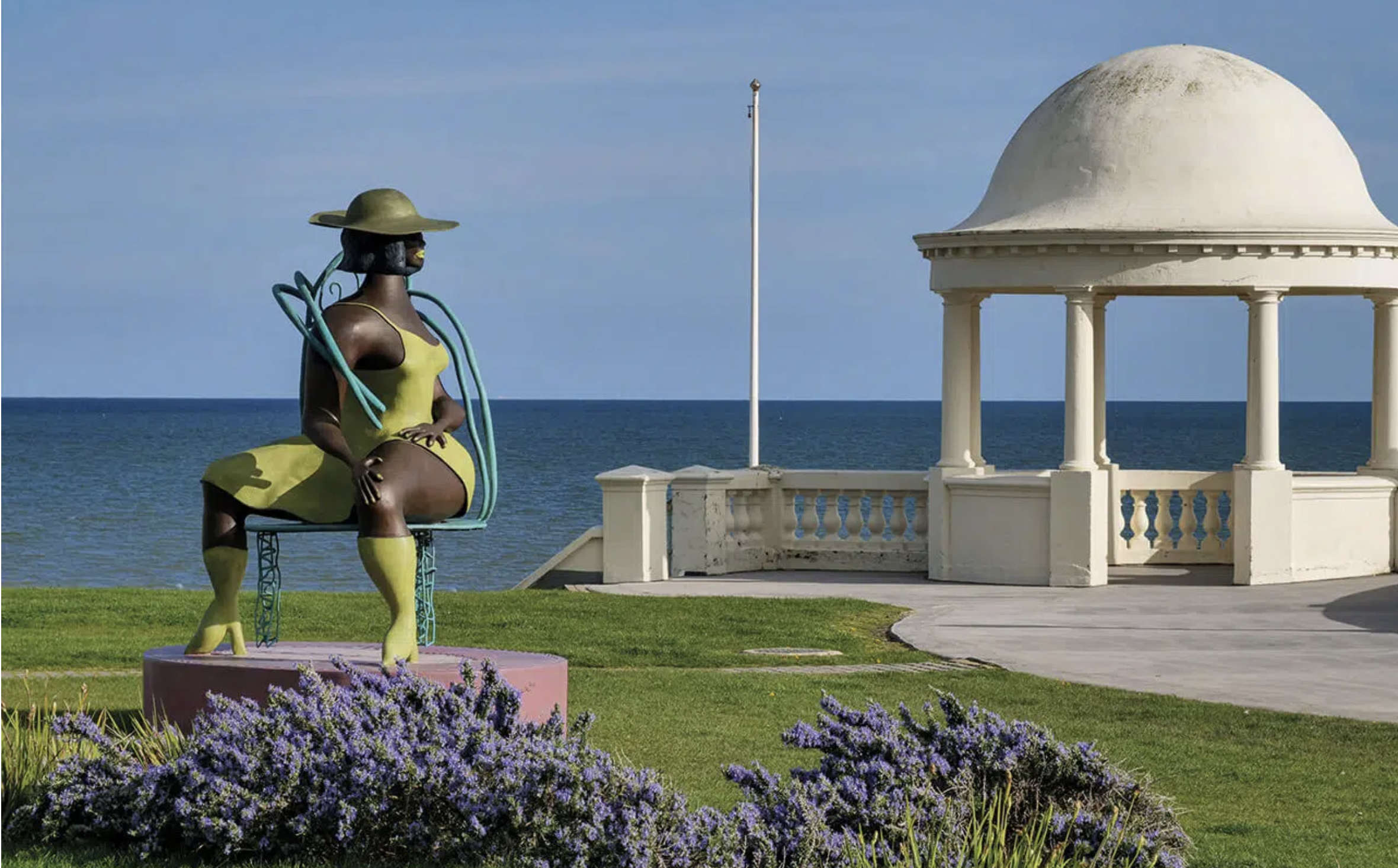
Tschabalala Self: Seated, 2023, Installation view, De la Warr Pavilion, Bexhill-on-Sea. Photography: Lineker Photography
The sculpture was placed at the site in 2022. At the time, Self said:
‘Taking a seat is a universal act of leisure and calm. I wanted to create a monumental sculpture for the public that spoke to this simple joy. The woman is strong, beautiful and self-possessed. She represents all individuals, but women in particular, who understand the power and importance of simple gestures that assert their right to take up space.’


 Meet The Southern Train Driver Magistrate Delivering Justice In Sussex
Meet The Southern Train Driver Magistrate Delivering Justice In Sussex
 Witnesses Sought Following House Fire In Eastbourne
Witnesses Sought Following House Fire In Eastbourne
 University Of Brighton Recognised As Top Sports Education Provider
University Of Brighton Recognised As Top Sports Education Provider
 Shoreham Harbour RNLI Opens Recruitment For Boat Crew Volunteers
Shoreham Harbour RNLI Opens Recruitment For Boat Crew Volunteers
 Eastbourne man admits stalking woman in Hailsham
Eastbourne man admits stalking woman in Hailsham
 CCTV Appeal After Luggage Stolen From Gatwick
CCTV Appeal After Luggage Stolen From Gatwick
 Appeal After Boy Seriously Injured In Firle Collision
Appeal After Boy Seriously Injured In Firle Collision
 Boy Charged After Knife Incident On Brighton Bus
Boy Charged After Knife Incident On Brighton Bus
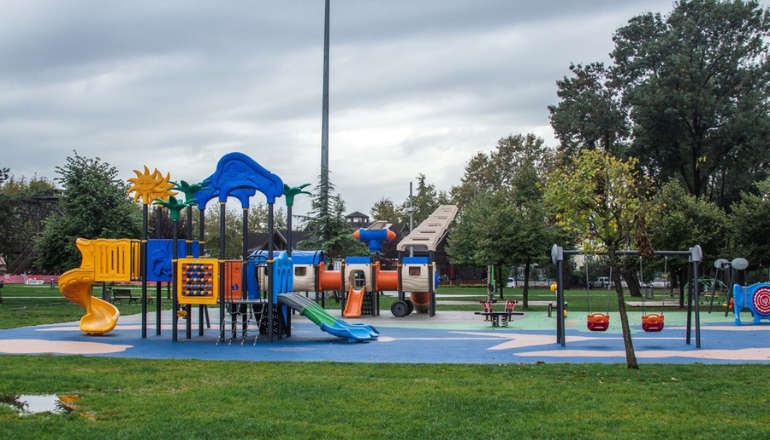 Play Area Refurbishment In Chichester Moves A Step Forward
Play Area Refurbishment In Chichester Moves A Step Forward
 Captivating Water Projection And Light Show To Be Held At Arundel Lido
Captivating Water Projection And Light Show To Be Held At Arundel Lido